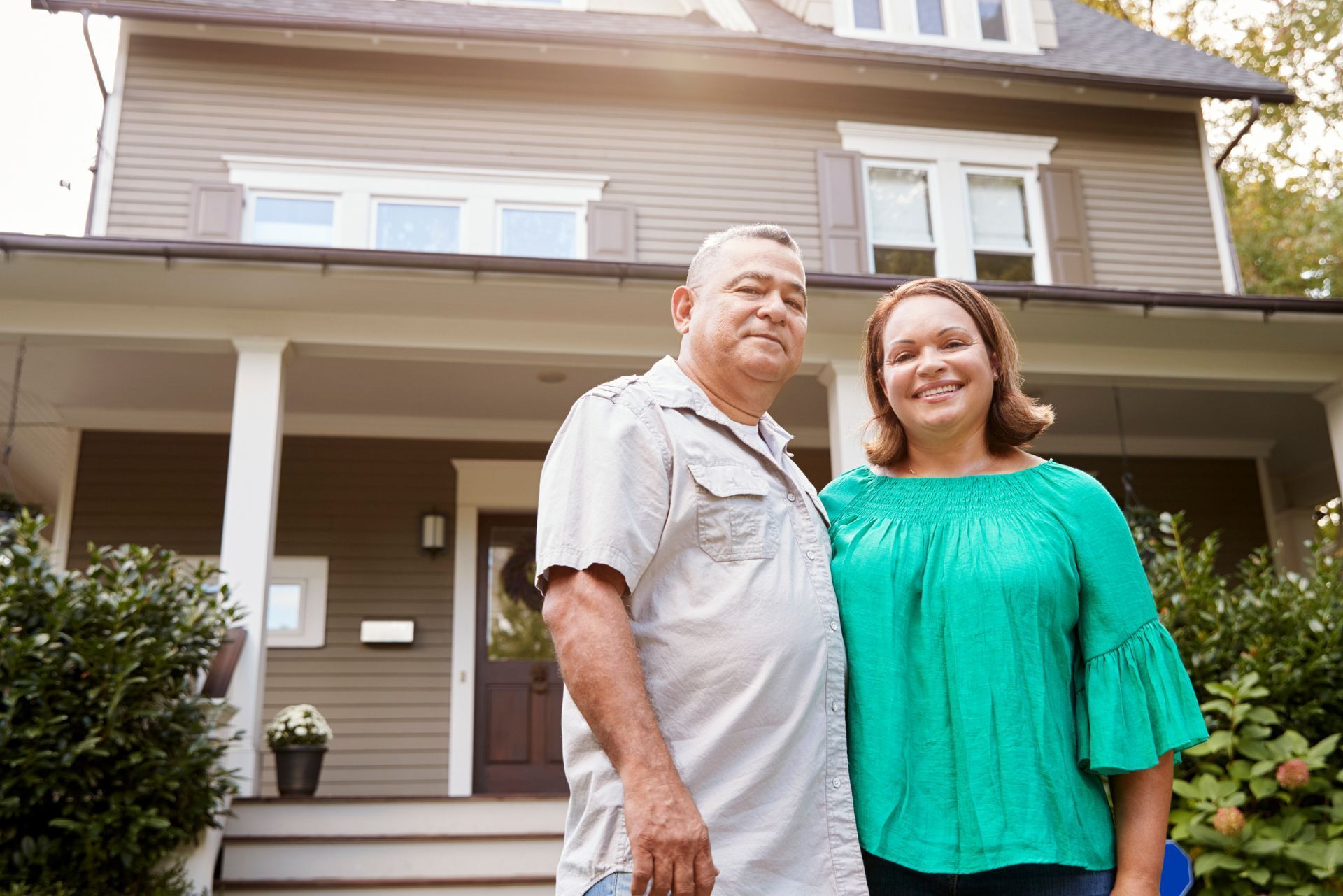Email us today!
Index
Home Insurance Rates by city
Contact Us
Phone
(248) 647-2500
hello@oaklandinsurance.com
Location
8055 Ortonville Rd, City of the Village of Clarkston, MI 48348
Michigan law does not require homeowners to carry homeowners insurance, but it is strongly recommended. Having a policy in place can provide financial protection if your home is damaged by a natural disaster, fire, or other events.
Homeowners insurance covers the cost of repairs and replacements due to damage from disasters, as well as liability in case someone is injured on the property.
The type and amount of coverage available through homeowners insurance policies vary from company to company, so it’s important to compare policies and select the one that best meets your needs.
What are the Types of Homeowners Insurance Policies in Michigan?
The most popular form of homeowners insurance in Michigan include:
Broad (HO-2): This insurance policy covers damage to the home and the personal belongings inside it from specific causes such as fire, theft, and windstorms, among others listed in the policy. These policies are also referred to as "named peril" policies.
All Risk (HO-3): This policy provides coverage for the main dwelling against most types of damage, except for specific exclusions listed in the policy. Personal property within the home is typically protected against particular loss or damage listed in the policy.
Renters (HO-4): This policy protects a person's personal belongings if they are stolen, damaged, or destroyed while in a rented home or apartment. The coverage applies to specific risks (named perils), and the reimbursement for a loss is based on the item's current value at the time of the loss.
The policy does not cover the physical structure of the rental property or any detached structures on the property. Additionally, the policyholder can opt for additional coverage for reimbursement based on the cost of replacing the lost item.
Condominium (HO-6): This policy covers the personal property and contents of the owner. However, it also covers the part of the condominium unit that belongs to the owner, such as any renovations, appliances, fixtures, and improvements within the unit or a part of the building. The policy covers both the unit and its contents against specific risks. The policyholder can choose the limit of coverage based on the value of their personal property and contents.

Types of Homeowners Insurance Coverages Available in Michigan
Homeowners insurance typically includes seven main types of coverage: Coverage A, B, C, D, E, F, and G. These coverage types are complex and may have exclusions and limitations. It's important to consider more than just price when selecting insurance and to ensure that the coverage is sufficient.
- Dwelling (Coverage A) protects the home against loss and damage. Losses are typically settled on a replacement cost basis, except for repair cost policies.
- Appurtenant Structures (Coverage B) covers other structures on the property, such as a detached garage or swimming pool, for up to 10% of the dwelling coverage amount at no extra cost.
- Personal Property/Contents (Coverage C) protects personal belongings in the home and may vary depending on the policy. Losses are typically settled on an actual cash value basis, but some companies offer replacement cost coverage for an additional premium. There is also protection for personal property while away from home, with a coverage limit of 10% of the total contents coverage amount. Certain items, such as jewelry or computers, may have special limits on coverage.
- Additional Living Expenses (Coverage D) pays for extra expenses incurred if the homeowner needs to live away from home following a covered risk. These expenses include hotel or apartment bills, restaurant meals, and lost rent. The coverage limit is typically 20% of the insurance on the home.
- Liability (Coverage E) provides protection in the event the homeowner is legally obligated to pay for bodily injury or property damage to others. This coverage will pay to defend the homeowner and provide coverage if they are determined to be liable.
- Medical Payments (Coverage F) pays for immediate care, such as first aid or ambulance charges, for someone injured on the property. The amount of coverage varies by company.
- Property of Others (Coverage G) provides replacement cost coverage for physical damage to the property of others caused by the insured. The amount of coverage may vary by insurer.
Extra Coverages You Can Purchase in Michigan
There are other coverages available in Michigan that can be added to a homeowners insurance policy. So it is important to speak to your insurance agent to find out what coverages are available and determine which ones best suit your needs. Some of the extra coverages that may be offered include:
Debris Removal: This coverage can pay for removing debris and salvageable materials from an insured property if a covered event damages it.
Tree Removal: This coverage can help pay for removing damaged trees from a home after an insured event.
Fire Department Service Charge: This coverage can help pay for the bill from a fire department if they are called to an insured property after an event.
Personal Property Endorsements: This coverage can provide protection for your personal belongings if a covered event damages them.
Ordinance and Law Coverage: This provides extra coverage for any changes to the property resulting from local laws and regulations.
Sewer Backup Coverage: This coverage provides protection from damage caused by a backed-up sewer or septic system.
Flood Insurance: This type of insurance is not covered under most homeowners policies, but it can be purchased through the National Flood Insurance Program.
Settlement Options Found in Homeowners Policies
There are three types of settlements available in homeowners insurance policies: replacement cost, repair, and actual cash value.
- Replacement Cost: This settlement option is based on the current cost to repair or replace damaged items with similar quality materials. Replacement cost does not consider depreciation and can provide more protection than other options. It may also be more expensive.
- Repair Cost: This type of settlement option pays for the actual cost to repair damages, taking into account depreciation.
- Actual Cash Value: This option pays for what the damaged items are worth at the time of a claim minus any applicable deductible. It is generally cheaper than replacing or repairing items due to depreciation being taken into consideration.
How Much Is Homeowners Insurance in Michigan?
The cost of homeowners insurance in Michigan varies based on many components. These include:
- Amount and type of coverage: The amount and type of coverage you choose to add to your policy and the company you select will influence the cost of your homeowners insurance.
- Deductible: Your deductible is the amount you will pay out of pocket for a claim. Higher deductibles can mean lower premiums, but it’s important to consider how much you can afford to pay if there is an emergency before selecting a higher deductible.
- Home Location: Where you live does influence homeowners insurance costs. Living in an area prone to natural disasters like hurricanes or floods can increase your premiums. Additionally, certain home safety features can reduce your rates.
- Your home’s age and condition: The age and condition of your home can also affect premiums. Older homes may cost more to insure due to the increased risk of damages, while newer homes with updated safety features can qualify for discounts.
- Your claim history: If you have had previous claims approved, your rates may be higher due to the increased risk you pose as an insured. It’s important to review your claim history when shopping for insurance companies.
- Construction material used in your home: The type of materials used to construct your home can also influence the cost of insurance. Stone and brick homes are typically more expensive to insure due to their higher fire risk, while wood-framed homes may qualify for discounts.
- Type of home: The type of home you own, such as a single-family home or a condo, can also impact the cost. Typically, condos are cheaper to insure because they share common walls and other structures with neighboring units.
Based on these factors and more, homeowners insurance in Michigan can cost an average of $1,260 per year. However, the cost varies greatly depending on individual needs and circumstances.
How to Lower Your Homeowners Insurance Premiums in Michigan
In order to lower your homeowners insurance premium in Michigan, there are several steps you can take.
- Raise your deductible: Increasing your deductible can help you save money on your homeowners insurance premiums in Michigan. A higher deductible means you will have to pay more out of pocket if you experience a covered loss, but it could also lower your rates by hundreds of dollars each year.
- Take advantage of discounts: Many companies offer discounts for things like installing a home security system, having an alarm system, or making regular payments. Take the time to research which discounts are available and determine if you qualify for any of them.
- Bundle policies: If you have your auto and homeowners insurance through the same company, you may get a discount for bundling your policies. This could result in significant savings on both policies.
These are just a few ways you can save money on your homeowners insurance premiums in Michigan. Take the time to explore all your options and find the best deal for your situation.

Having a Question? Let Us Know Today.
Oakland Insurance Agency is here to help. We have insurance experts on staff who can answer any question about homeowners insurance in Michigan. Whether you are looking for an explanation of coverage, advice on the best policy for your needs, or more information about discounts, we are happy to provide the answers and guidance you need.
Contact us today at today to get started. We look forward to serving you!
REQUEST A QUOTE
Speak with a homeowners insurance specialist today!
Get started today!
Prefer to speak with an agent now?
Call: (248) 647-2500
Contact Us
We will get back to you as soon as possible.
Please try again later.
Get in touch
Oakland Insurance
8055 Ortonville Rd, City of the Village of Clarkston, MI 48348
8am to 5pm EST Monday to Friday







